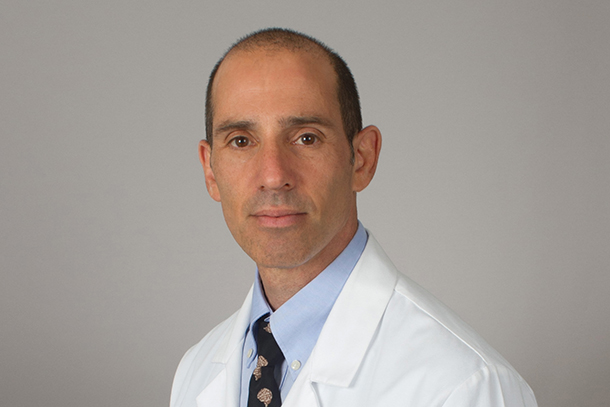Steven Siegel, MD, PhD, recently was appointed chair of the Department of Psychiatry and the Behavioral Sciences at the Keck School of Medicine of USC. Siegel is a physician-scientist who specializes in the treatment of schizophrenia and psychosis. Siegel previously spent 20 years at the University of Pennsylvania where he was a professor of psychiatry and biomedical engineering, director of the Translational Neuroscience Program in the Department of Psychiatry, director of the Clinical Neurosciences Training Program, and associate director of the Clinical and Translational Science Awards (CTSA) education programs. He recently talked with HSC News about his background and where he wants to take the department in the coming years.
You have done a lot of translational science in your career. Will you talk about one of your early projects?
I came from a basic science background and originally wanted to study imaging of people with psychiatric disorders. I came to realize they didn’t need their brains imaged — what they needed was to take their medications. I decided to develop a drug delivery system to deliver antipsychotic medications with a single injection per year. That research led to several patents, which were licensed to a company that was sold to Teva Pharmaceutical Industries. Teva currently is developing this type of drug delivery system for schizophrenia.
Are you still doing research now and what is the subject of your current work?
I started to study electrophysiology in mice — understanding changes in brain function in awake and alert animals — to look at what might be the underlying cause of schizophrenia. It occurred to me that we could use our mouse models to understand what changes in brain activity occur when a drug crosses the blood-brain barrier and engages its target. It won’t tell you if the drug is going to be efficacious, but it helps you distinguish a drug that didn’t cross the blood-brain barrier and one that didn’t have its intended effect even though it did.
What are the pitfalls of trying to do translational science?
I think there are a number of them. Developing treatments and trying to do something that is clinically applicable in the next five years is really tough. It takes a lot of money and it may not work. There will be more failures than successes and the research may not yield publications. Things are changing but it can still be a challenge to convince academic institutions that translational science is a worthwhile endeavor.
How do you see the future of the Department of Psychiatry and Behavioral Sciences?
Psychiatry has a reputation as being a top clinical department at Keck Medicine of USC. We want to maintain that standing since we have some of the top clinicians in the country, and we want to bolster the reputation on the research side. We’ve been fortunate to have support of various philanthropic organizations like the Della Martin Foundation, to pursue that goal. I also want to reach out to industry and let them know that we can help develop new therapies and test whether they are going to be viable in humans.
Why do you think the Keck School is a good place to push the department toward research?
There are excellent collaborators across the neurosciences at the Keck School, which is one reason this is the place that this kind of work can succeed. The university has strength in neuroimaging, neurogenetics and biomedical engineering, and places like the Clinical and Translational Science Institute create this constellation of factors that could come together to make the Keck School a place where there is much robust psychiatric research.
— Hope Hamashige


